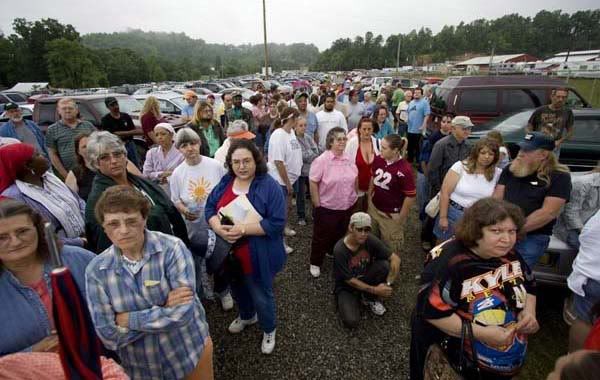[Dear Moose Brigade, I posted this diary over at MyDD in an attempt to improve the I/P debate over there. Fat chance, you say? Sure. But I am a fan of experiments in impossibility. That’s why I love being a parent. Anyway, I think this issue WAY too important to be treated as it is over there. If you want to comment here, using it as a repectful I/P open thread, please do. But comments from those of you who haven’t completely sworn off that site or this issue would be most welcome over there where it may be more relevant.]
Something has gone seriously awry here and I want to try to correct it. This requires your help. Please forgive the `meta’ tone of the current diary and the personal narrative it contains. Its purpose is to widen active engagement of one of the most entrenched twentieth-century conflicts and human rights disasters that endures into the twenty-first, one of the greatest foreign policy challenges America is embroiled in, and one of the most important stages upon which the structural tensions between liberal nationalisms and principles of human rights are being exercised at this historical juncture. This conflict is at one and the same time idiosyncratic and representative, peculiar and paradigmatic, unique and influential. That its discussion has been limited on this progressive blog is not due to a lack of recognition of its importance. Rather, it is because participants in this discussion – and I do not absolve myself here – have shown insufficient consideration for one another, insufficient humility with regard to their own understanding and knowledge, insufficient appreciation for the cultural-historical complexity that underlies this conflict, and insufficient faith in their opponents’ intentions.
The discussion has thus been limited to a handful of participants. Most others are reticent to read and participate. No one is learning anything. All that it produces is heightened division, entrenchment of already formed positions, and ad hominem demonization. As such, our discussion of the conflict here seems to mirror some of the least productive aspects of the conflict itself. Given the international importance of this subject – the involvement of our tax dollars, the ramifications for our foreign policy and our position in the world, and the progress we seek as progressives with regard to international human rights and civil society – we have a responsibility to do better.
My own engagement with this conflict is protracted and personal. I am a dual Israeli-American citizen. From January 1987 through December 1989, I served in an infantry division of the Israel Defense Forces, much of it as a squad commander. Readers familiar with the history of the region will immediately note that this period included the first Intifada. I had always been on the left side of the political spectrum. I always saw Zionist nationalism as a means to an end. I saw it as part of an optimistic historical process wherein it would prove a means to the transcendence of nationalism, to its obsolescence, to an ethically superior mode of cultural self-determination that included emphasis on productive cosmopolitan participation. I admit that this was naïve and plead youth and good intentions, as well as my enduring commitments both to Jewish cultural life and to ethically engaged cosmopolitanism, as its primary motivations.




 Way back when as a new teacher, when people used to ask me, “What do you teach?” I would answer, somewhat sardonically, “Children, I teach children.”
Way back when as a new teacher, when people used to ask me, “What do you teach?” I would answer, somewhat sardonically, “Children, I teach children.”